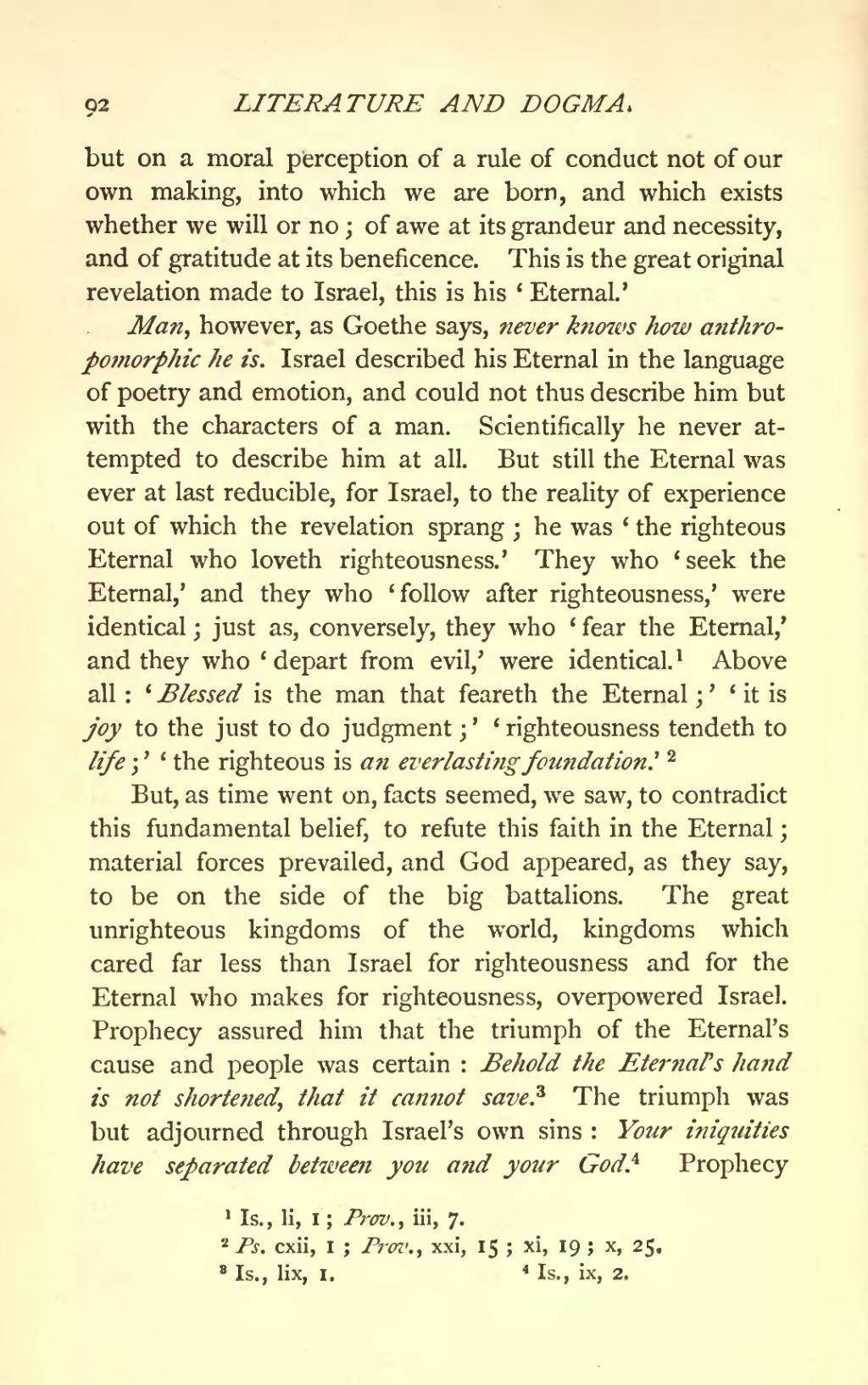but on a moral perception of a rule of conduct not of our own making, into which we are born, and which exists whether we will or no; of awe at its grandeur and necessity, and of gratitude at its beneficence. This is the great original revelation made to Israel, this is his 'Eternal.'
Man, however, as Goethe says, never knows how anthropomorphic he is. Israel described his Eternal in the language of poetry and emotion, and could not thus describe him but with the characters of a man. Scientifically he never attempted to describe him at all. But still the Eternal was ever at last reducible, for Israel, to the reality of experience out of which the revelation sprang; he was 'the righteous Eternal who loveth righteousness.' They who 'seek the Eternal,' and they who 'follow after righteousness,' were identical; just as, conversely, they who 'fear the Eternal,' and they who 'depart from evil,' were identical.[1] Above all: 'Blessed is the man that feareth the Eternal;' 'it is joy to the just to do judgment;' 'righteousness tendeth to life;' 'the righteous is an everlasting foundation.'[2]
But, as time went on, facts seemed, we saw, to contradict this fundamental belief, to refute this faith in the Eternal; material forces prevailed, and God appeared, as they say, to be on the side of the big battalions. The great unrighteous kingdoms of the world, kingdoms which cared far less than Israel for righteousness and for the Eternal who makes for righteousness, overpowered Israel. Prophecy assured him that the triumph of the Eternal's cause and people was certain: Behold the Eternal's hand is not shortened, that it cannot save.[3] The triumph was but adjourned through Israel's own sins: Your iniquities have separated between you and your God.[4] Prophecy
